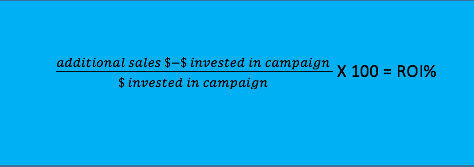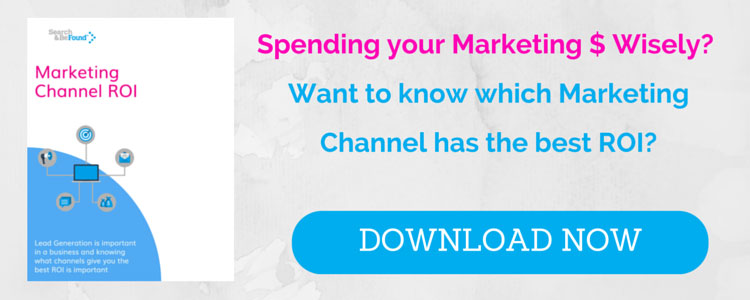![]()
There used to be an age old generalisation floating around all types of business sectors. The wording often differed, but the sentiment was consistent.
It went along the lines of: marketing is a necessary waste of money.
Some believe this is still the case. But for those a little more informed, it is only half true.
We definitely believe it is necessary, but in no way is it a waste of money anymore.
Marketing is no longer a shot in the dark anymore. The openly tangible proof is the downscaling of large advertising agencies which had fed off this smokescreen like Henry VIII would at dinner.
Today, it’s a totally different kettle of fish. If you can’t obtain data that clearly defines your return on investment, then you are doing something wrong.
What is ROI?
Return on investment (ROI) is a measure of the profit earned from each investment. Like the “return” (or profit) that you earn on your portfolio or bank account, it's calculated as a percentage. In simple terms, the ROI formula is:

Quantifying return on investment is vital in measuring the value or success of a campaign or specific marketing activity – or alternatively the lack of success of an activity or campaign. This is paramount in Small Medium sized Enterprise where every dollar counts. Understanding ROIhas never been more relevant.
By constantly calculating ROI allows you to not only assess what works and what doesn’t. It can also assist in honing and improving a marketing activity to improve it's performance in a way that is determined by fact and real world results.
Analysing ROI through a complete campaign we can focus and identify specific channels to ascertain what is worthwhile and what isn’t. I hope it is easy to see that ROI is the ultimate test and can be used as a marketing compass for your business to some degree.
Not all poor ROI is a negative
Marketers complete many activities that have a questionable ROI. Huh? Consider that sometimes we advertise repetitively in mediums that are sometimes hard to get factual ROI figures on.
With certain activities, the objective is predominantly to gain brand awareness than a quick, hard return of dollars invested. An example of this would be large companies that sponsor National sporting events. When they ask their clients where did they hear about us from, I don’t think the client answers ‘I noticed that you sponsored the NRL competition’ or the like.
Sponsoring a major sporting competition through the year would be determined as a branding activity. The objective would be to maximise their market share.
Short Term ROI
I have hopefully highlighted the importance of measuring ROI to specific marketing activities or campaigns in SME type businesses compared to some large corporation activities that are mostly attributed to brand awareness.
The calculation of ROI in SME seems fairly straight forward and cut and dried but it is not quite so. Although we can execute a marketing activity in an SME that has clearly defined results that generates direct income in the immediate sense, it is difficult to truly measure how much that activity delivers over the long term in ROI. In some way, even the smaller scale activities deliver to brand awareness too.
In Summary
I have worked in SME type businesses for over 25 years and I am yet to see a business that fully calculates and appreciates the importance of ROI. Many businesses talk about it but very few can answer the direct question of ROI on an activity. Which type are you ?
.png?width=320&height=132&name=sbf%20powered%20by%20hubshots%20(1).png)

